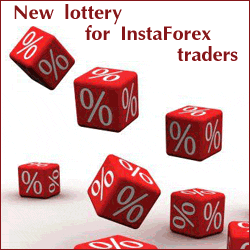There are a whole host of characters who regularly lose money in the market place, and most fall into two catogories:
1) False Ego Traders
2) Nervous Traders
The false ego mistakes come from a mixture of false pride and bravado and are the most dangerous mistakes to make. The trader, generally a beginner or intermediate — call him Tader A — gets an opinion in his head about market direction. His analysis may have even been sound, but his opinion keeps him from reading/seeing the signs that a change is occuring in the market he has targeted. He subconsciously see the changes, but false pride is the devil, and blocks the information from making it into his conscious decision making process. The change he needs to see may even be pointed out to him by a fellow trader –Trader B– but Trader A’s false ego blocks this because he knows “I’m smarter than Trader B…In fact I think its a good idea to fade Trader B”.
Trader A is also likely someone who is accustomed to being listened to. He may have been upper management in a company, or even owned the company. “People better listen to me” is how he sees it. He is likely more accustomed to talking rather then listening.
Despite trader A’s previous success’ Mother Market will bring him down quickly. Any early success he has in the market will only make for bigger losses down the road as he gets caught in the spiral of trying to make up for lost money and still make money. He doesn’t just want to get his money back, he wants that and then some. His time is valuable. He is going to make the market pay.
Well we all know how that works out, which is to say we won’t be seeing Trader A around for long.
Then there is Trader C, who is a nervous trader. Trader C is nervous because he had a bad day trading early on, and could not stop thinking that if he lost that same amount of money every day, he would be penniless in 54 trading days. Trader C worked hard his whole life, and despite having never got the big promotion or raise Trader C managed to save some money. Trader C is not used to people listening to him. But he is good at seeing things develop around him which makes him sensitive to change. This is a good thing for Trader C, who is more an analyst than a trader. But Trader C can never seem to catch the big one because every time he sees a trade up decent money, he remembers that loser in the begining, and he grabs the money rather then let the profit run. He also sets his stops too tight, and has a hard time following the rules when a trade goes against him. Trader C needs a shot of Trader A’s bravado. There are a lot of Trader C’s in the market place.
Often times Trader A types who survive will morph into Trader C types. Trader C though is in his rut becasue he can’t seem to make more than he risks.
The way to avoid being someone who ends up paying the advertising costs for the big Forex firms like Trader’s A & C is to understand how dangerous and competitve trading is to begin with. And prepare for it from that mind-set. Be “reality orientated”.
Two things I hear a lot in this business:
#1) I wish I would have started out demo trading.
#2) I wish I would have stayed in my demo account longer.
I’ve been around the trading game since 1980 and I can tell you that most of you will see something in yourself in Trader A & Trader C.
Beleve me, we all have more in common than we are different.
And when you shine a light on something that had been in the shadows, the shadows disappear.
Source: http://trading-u.com/blog/index.php/archives/52


